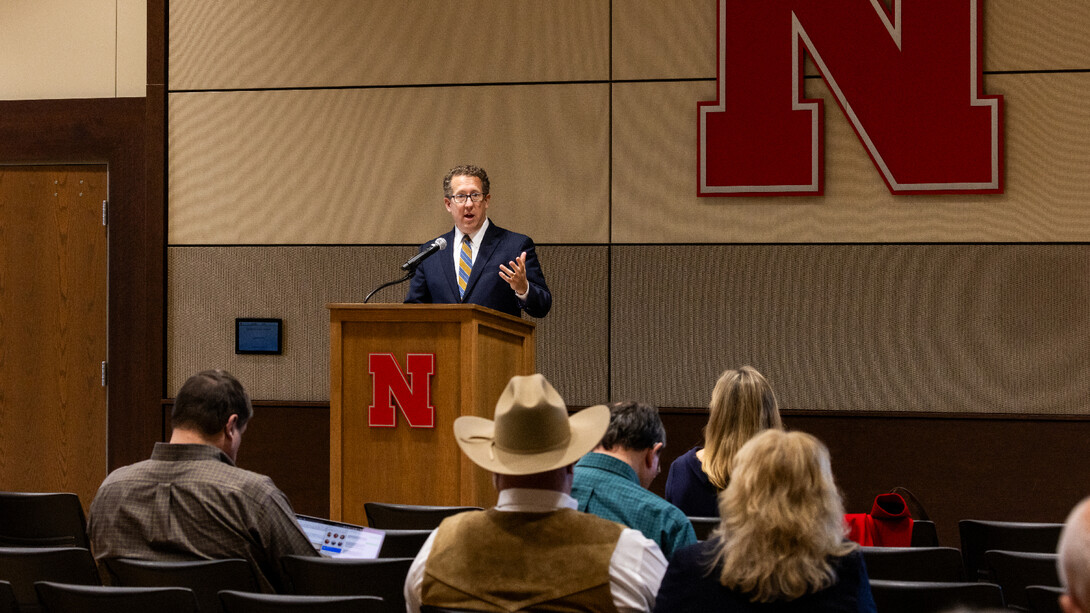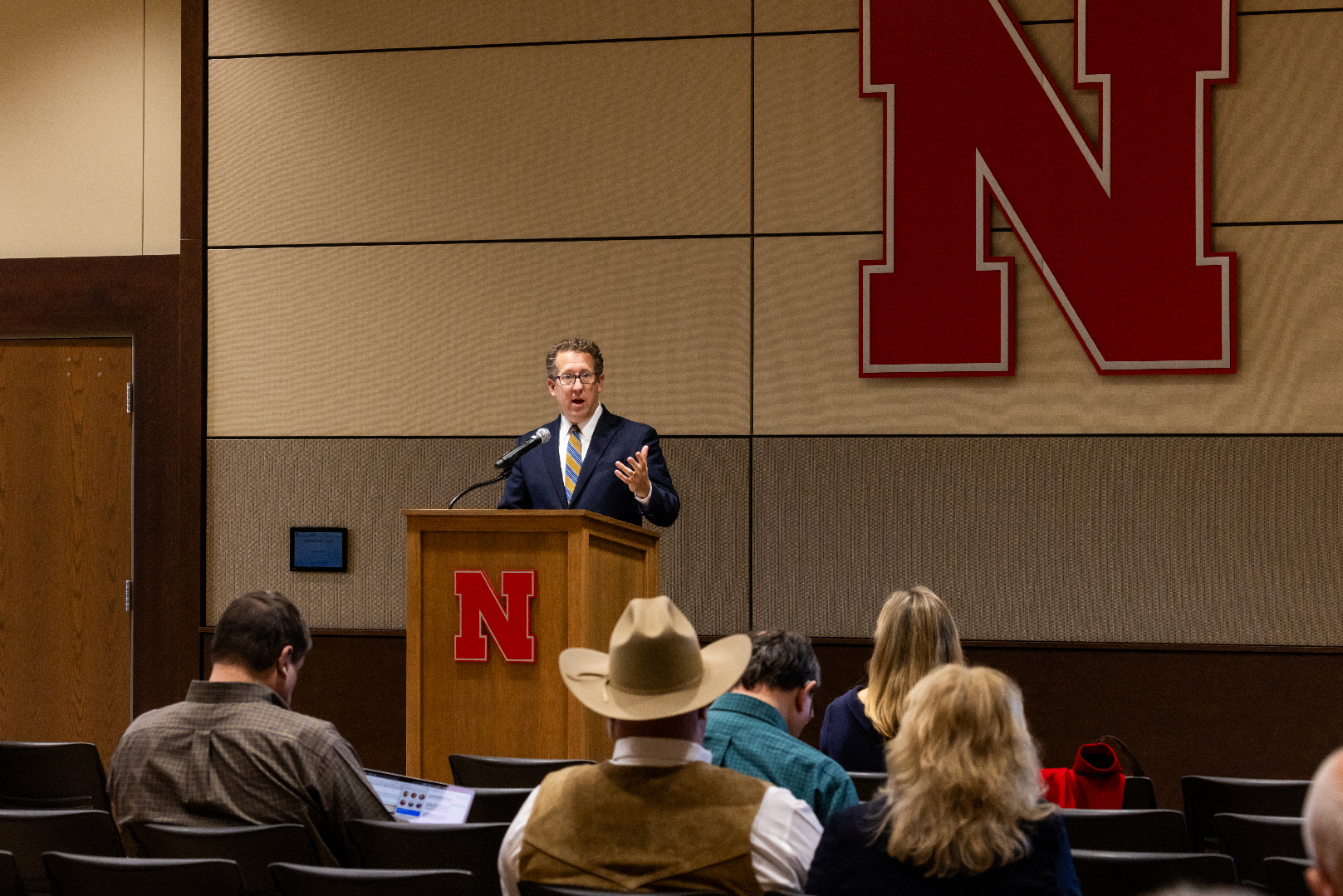
Nebraska and the United States can benefit from engagement in the global economy through rules-based agreements that ensure enforcement and are grounded in science, Rep. Adrian Smith said in a Feb. 20 lecture at the University of Nebraska–Lincoln. The Clayton Yeutter Institute of International Trade and Finance is providing leadership in exploring such economic opportunities and helping students understand trade issues, he said.
“I salute the Yeutter Institute for elevating the conversation and the work the students are doing,” Smith said. “I salute all of you for really digging in and looking for a way forward that provides more opportunity.”
Smith, who has represented Nebraska’s Third Congressional District since 2007, chairs the House Ways and Means Committee’s Trade Subcommittee and is the senior member of Nebraska’s congressional delegation. He spoke at the Nebraska East Union in a lecture to honor the Yeutter Institute on its fifth anniversary.
Yeutter (1930-2017), a native of Eustis, Nebraska, served as U.S. trade representative and agriculture secretary and earned three degrees from the University of Nebraska: a bachelor’s degree; law degree; and doctorate in agricultural economics.
Yeutter was a central figure in the late 20th century in negotiating trade agreements that began significant reductions in trade barriers to American agricultural exports. Yeutter “was a giant in Nebraska agriculture and leadership and truly across America and around the world,” Smith said.
The Yeutter Institute last fall began an international trade minor open to any Husker student, regardless of major. The minor is tailored to students’ individual needs and emphasizes a multidisciplinary approach and experiential learning through in-class simulations.
Students participating in the institute’s trade minor were among the audience members who addressed Smith during a question-and-answer segment of his presentation.
Smith, a past Nebraska state senator from Gering, underscored the importance of innovation in agriculture and the university’s role in bolstering such advancement in Nebraska. It’s vital “to look at new ways of doing things, especially in agriculture,” he said. “I salute the university for the research that they do for agriculture.”
Adopting new production methods may involve “taking a risk from time to time, but achieving so much more in pursuing the latest and the greatest in technologies so that we can have record yield amidst the drought,” he said. Innovations in biotechnology, irrigation and no-till “have really spoken for themselves in terms of innovation and drive.”
Research by Husker faculty has pioneered advances in such innovations, and Nebraska Extension specialists work with producers across the state to share the research findings and their practical applications for agricultural production and environmental stewardship.
Trade, unlike some issues before Congress, stands out for offering significant opportunities for bipartisan agreement in Washington, D.C., said Smith, who last year received the Congressional Leadership Award from the Washington International Trade Association.
International trade, when governed by soundly constructed agreements, benefits U.S. consumers and provides needed inputs for U.S. manufacturers, Smith said. Overseas markets are vital for Nebraska agriculture, he said, noting that the Third District he represents ranks No. 1 in agricultural product value among U.S. House districts.
“I requested to be on the Ways and Means Committee,” which deals with trade issues, “because I know how important trade is to Nebraska and to American agriculture,” he said.
In January, Smith and three other House members announced the creation of the bipartisan Congressional Agricultural Trade Caucus. The caucus aims to advance and promote policies vital to U.S. agriculture, including boosting agricultural exports, facilitating food and agriculture trade, and knocking down trade barriers.
Smith called on the Biden administration to become more active in seeking further market opening overseas. Potential bilateral trade agreements with the United Kingdom and Kenya offer promising opportunities, he said.
The revamp of the North America Free Trade Agreement under President Donald Trump was an example of bipartisan agreement on trade policy innovation, and the agreement’s enforcement mechanism is important now that the Mexican government is attempting to end imports of genetically edited corn from the U.S., he said.
Trade policy needs to be decided by scientific criteria rather than political considerations, he told the audience. This is particularly a problem with politically motivated non-tariff barriers that countries adopt, undermining U.S. ag export opportunities, he said.
The best results for trade policy happen when presidential administrations work constructively with Congress, and a U.S. shift away from China and toward friendly countries can help address current supply chain concerns, he said.








